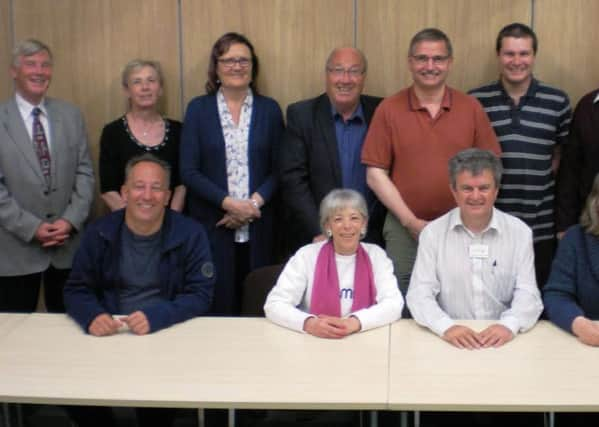Lib Dems refuse offer to form an alliance - but still hold the balance of power on Milton Keynes Council


The smallest party has politely shunned offers from both Labour and Conservatives to form an alliance.
Instead they are “sticking to their Lib Dem principles” and going it alone.
Advertisement
Advertisement
But, despite the new council make-up of 22 Labour and 22 Tories, the Lib Dem’s 13 seats will pack the heftiest political punch of all.
For they have manoeuvred Labour’s incumbent council leader Pete Marland into adopting part of their manifesto on key issues such as homelessness and housing.
They have demanded that two homeless hostels be built by the council, on council land, within the next two years.
Both parties are also in agreement that there will be no grammar schools in MK –despite local Tories’ dreams of selective education.
Advertisement
Advertisement
Lib Dem leader Douglas McCall said: “Labour offered us a joint administration, which included seats on the cabinet. We declined because we believe our polices are more important than cabinet seats.” He added: “We considered carefully the offers from both other parties. Our policies overlap more with Labour than Conservative, but we are people of principles and do not think a joint administration would be right.”
Labour, who scooped the most actual votes, elected Mr Marland for a four year term as council leader in 2014.
A vote of no confidence would be the only way now to remove him as leader.
Pete described Labour’s relationship with the Lib Dems as a”working understanding.”
Advertisement
Advertisement
“We will listen to the people and will continue to work for the good of the city,” he vowed.
Meanwhile Conservatives had hoped to win up to seven seats to enable them to take over the running of Milton Keynes Council.
In fact they did not win a single seat.
They now blame David Cameron for the lack of crucial votes.
Tory leader Edith Bald said: “Central government did us no favours. When we went from door to door we found people were cross about national issues.”
The main issue was Mr Cameron’s insistence on staying in Europe. This was closely followed by plans to turn all schools into academies and the cuts in disability benefits, said Edith.